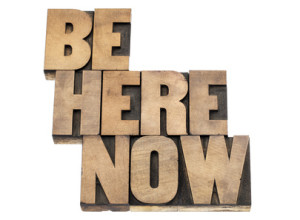 My best friend, who is in medical school, tells me one of his classmates consistently receives top scores on his rotation evaluations, while he received good, but not perfect evaluations. Both being excellent students, he didn’t understand what caused this discrepancy. The difference? The other student has a background in theatrical arts, and probably without knowing it, excels at the art of body language, and conveys empathy and effective communication. These simple skills evidently had a significant impact on the patients’ perception of the future-doctor’s listening skills.
My best friend, who is in medical school, tells me one of his classmates consistently receives top scores on his rotation evaluations, while he received good, but not perfect evaluations. Both being excellent students, he didn’t understand what caused this discrepancy. The difference? The other student has a background in theatrical arts, and probably without knowing it, excels at the art of body language, and conveys empathy and effective communication. These simple skills evidently had a significant impact on the patients’ perception of the future-doctor’s listening skills.
Though its significance is often underestimated, communication is vital in functional relationships, and the glue to the network that is an individual’s social support. It fosters a sense of closeness and trust, which in turn builds effective communication. There are countless articles and inspirational videos out there that are trying to tell us we need to put our screens down, and bank in some real face time to create a sense of closeness. Even with the screen down, communication may still be compromised. But keeping my medical school friend in mind, we can learn to be better listeners and communicators.
- Don’t interrupt – I’ll admit, I am awful at this. Oftentimes, I think of the perfect response to something in a conversation and blurt it out so I don’t forget what I have to say later. This is definitely something to work on. The goal is to let whoever is talking finish their thoughts. It’s a small gesture, but reassures the speaker that what they are saying is important and you want to hear it to the end. As the listener, you come across as attentive and patient.
- Don’t talk about yourself – It is extremely irritating to talk with someone only to have them respond with, “I know exactly how you’re feeling, here’s my situation, and it’s worse than yours,” etc. You may have the perfect situation to relate to the speaker, which is excellent and absolutely worth sharing if they are seeking your opinion. However, try not to jump back to yourself immediately, or take over the conversation.
 Situate yourself to be concentrated – If you’re similar to me in that your eyes dart at the slightest stimulus, try and position yourself for focusing. For example, if you’re in a restaurant or a café, don’t take the seat that faces the window, take the one facing the wall so you can better focus on the conversation. In regards to body language, this means pointing your feet and upper body so they face the speaker, and leaning your body slightly forwa
Situate yourself to be concentrated – If you’re similar to me in that your eyes dart at the slightest stimulus, try and position yourself for focusing. For example, if you’re in a restaurant or a café, don’t take the seat that faces the window, take the one facing the wall so you can better focus on the conversation. In regards to body language, this means pointing your feet and upper body so they face the speaker, and leaning your body slightly forwa
rd to show you are eager to hear what the other has to say.
With all the communication platforms and technology we have available at our fingertips, you would think that we are getting better at communicating with one another. On the contrary, it is time we revert back to basic manners and body language to ensure we pay attention in our conversations. It is truly amazing how much people open up, and what you can learn from others when you listen wholeheartedly.








Leave A Comment